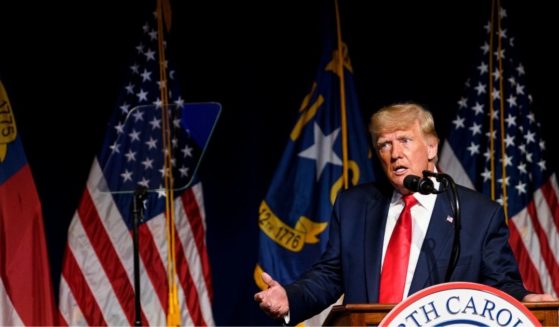
It’s becoming impossible to ignore the “audit fever” that began in Maricopa County, Arizona, and is spreading into other critical swing states.
Earlier this month, Politico-Morning Consult released a poll that found that nearly 20 percent of voters believe former President Donald Trump will likely be reinstated due to fraud in the 2020 election.
The poll was conducted from June 4 to June 7 among 1,990 registered voters with a margin of error of +/- 2 percentage points.
On Friday, a Hill-HarrisX poll showed that 30 percent of Republicans, 13 percent of Democrats and 26 percent of independents think Trump will likely be reinstalled at 1600 Pennsylvania Avenue this year.
That poll was conducted from June 17 to June 18 among 942 registered voters with a margin of error of +/- 3.19 percentage points.
After reporting the results of the poll, The Hill added: “There is no constitutional or legal mechanism for Trump to return to office in 2021 after losing to President Biden in last year’s election. The Electoral College results were certified by Congress in January.”
We’re certainly in uncharted territory, but to say there is “no constitutional or legal mechanism” to right the wrong that many are convinced occurred last November might be wishful thinking on the part of The Hill.
On Monday, former Trump campaign adviser Boris Epshteyn joined Dr. Gina Loudon on her podcast, “Real America’s Voice,” to discuss what could be done.
Epshteyn believes that if fraud is proved in a sufficient number of states, the case will be given to the Supreme Court to decide.
“To say there’s not a path is a misunderstanding of the Constitution,” Epshteyn said.
“To say there’s not a path is a misunderstanding of the constitution” @BorisEP joins @RealDrGina tonight at 7pm ET on #PrimeTime to explain how President Donald Trump could potentially be reinstated. pic.twitter.com/yKtlFxuh7p
— Real America's Voice (RAV) (@RealAmVoice) June 21, 2021
“The Constitution is a negative rights document, meaning it prohibits certain things. It prohibits the states from abridging the right to free speech. It prohibits the federal government from doing the same. It prohibits putting somebody in jail without having actual charges against them.”
“But everything that is not prohibited in the Constitution is allowed. So, for example, the Constitution doesn’t speak to our ability or right to drive a car. It doesn’t say anything about us going to the beach, but we can still go to the beach.”
“Processes not laid out in the Constitution are assumed actually to be constitutional,” Epshteyn continued.
“And if anything, the interplay of the Tenth Amendment, which says that what is not enumerated is left to the states, the Twelfth Amendment and Article II of the Constitution, which say that state legislatures are the ones who define how presidential elections are carried out, would suggest that states do have a right to de-certify.
“And from then, it’s an open question what happens next. And I believe that that question will end up in front of the Supreme Court. But nobody can say for sure that it’s unconstitutional. … This is a deep constitutional question, but what I know for sure is that it’s impossible right now to say that there could not be reinstatement.”
I’m not saying that Trump will be reinstated.
However, if sufficient fraud is proved in Arizona, Georgia and Pennsylvania — or perhaps a different combination of swing states — to overturn the results in those states and provide Trump with the number of electoral votes he needs to win, there is a way forward.
Yes, this is an unprecedented situation. That doesn’t mean it’s too big for us to handle.


